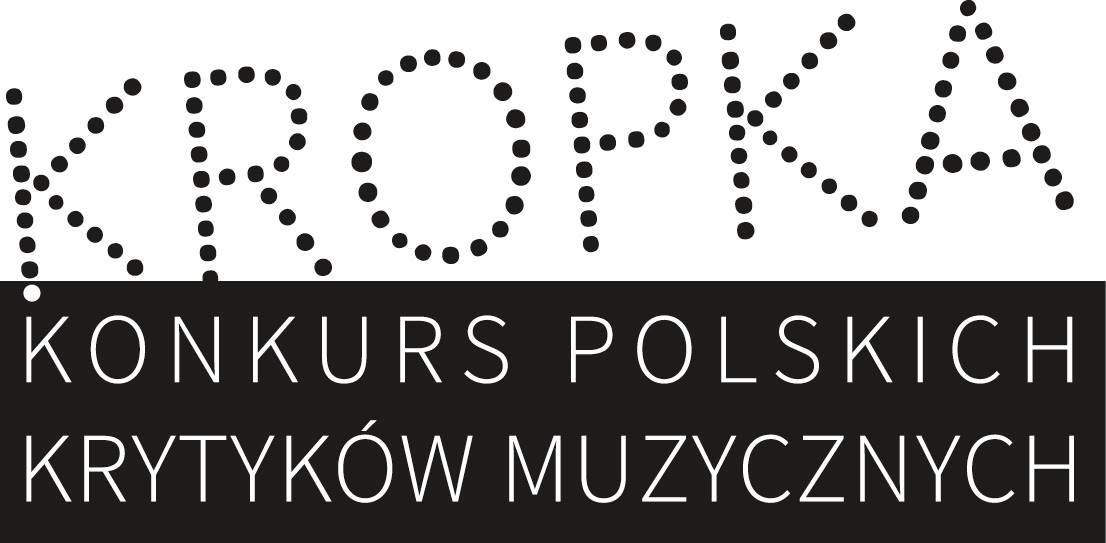It would be a truism to say that young composers educated in Poland during the inter-war period went into adulthood hugely influenced by Karol Szymanowski. I mean here not only Witold Lutosławski, born in 1913, or Andrzej Panufnik, born a year later – both regarded as the most outstanding representatives of the generation making its debut before the outbreak of the Second World War – but also, perhaps above all, their a bit older colleagues: Zygmunt Mycielski, Roman Palester, Antoni Szałowski, Konstanty Regamey (all four born in 1907), Grażyna Bacewicz (b. 1909), Roman Maciejewski (b. 1910) or Stefan Kisielewski (b. 1911). All these composers grew up strongly influenced by their contacts with Karol Szymanowski (1882–1937). And it was the encounter with the personality of this great artist, with his views and, last but not least, with his music that had a fundamental impact on both their musical development and their attitude to art as well as their understanding of the artist’s duty. It was a kind of generational experience. At this point it should be noted that we are dealing with two groups of composers.
The older among them, like Palester, Mycielski or Maciejewski, had direct contact with Szymanowski as a teacher, be it at Warsaw’s Higher School of Music or during private compositional consultations. On the other hand for Panufnik and Lutosławski, who were a few years younger, Szymanowski remained a great fascination despite the fact that they did not have many opportunities for personal encounters with him. Significantly, in their memoirs they both recall their fleeting, isolated encounters with the master as very disappointing, which is fundamentally different from the delightful memories of Szymanowski’s personal charm and long conversations with him about music and art that their older colleagues had. However, by the time Lutosławski and Panufnik met Szymanowski, he had become ailing and bitter. Before that he was full of vigour and belief in the young, and had a different impact on them.
I visited Szymanowski. He made an extraordinary impression on me. He is immensely kind and charming. He became interested in me, […] I’m supposed to come to Szymanowski, if I write anything new, wrote Roman Maciejewski, describing his first encounter with the master in November 1931. Shortly before that Maciejewski had begun to study composition at the Warsaw Academy of Music (this was the customary name of the Higher School of Music, which emerged from the reform of the Conservatoire). Szymanowski was its rector and his presence was of huge importance to the young people studying there. The students saw Szymanowski as a man of unquestionable musical authority. The greatest of the living Polish composers. It also quickly turned out that as rector Szymanowski was friendly to students; he would often invite them to his apartment to talk about music and other matters. Iwaszkiewicz even said: During his stay at Bristol this small anteroom was simply crammed with visitors. Whenever I popped round, I always found many people there […]. They included Szymanowski’s younger friends, like Zbigniew Uniłowski, Zygmunt Mycielski, Aleksander Szymielewicz, or the well-known film actor Witold Conti. One could also meet there a whole host of composers gathered around Szymanowski, artists like Perkowski, Kondracki, Niekraszowa, and then Palester, Szałowski or Maciejewski.
Thus Szymanowski’s extraordinary personality – open to young students of composition idolising the master and his ideas, but at the same time trying to follow their own paths – had a major impact on the students of the Warsaw academy. The students not only saw in Szymanowski someone who would revive Polish music and who was the leader of the reforms carried out at the school, but also adored him quite simply. So much so that his dismissal sparked a threat of student strikes, the initiator of which was Maciejewski – who was eventually expelled from the academy. As a result of the conflicts at the academy Stefan Kisielewski was officially reprimanded and Grażyna Bacewicz had to be satisfied with a lesser grade at her diploma – she apparently later laughed about it…
What about the impact of Szymanowski’s music itself on young people? It was a real shock for me. For weeks I would walk as if I were dizzy. This narcotic-like effect of Szymanowski’s music lasted for several years, subsiding only towards the end of my studies – this is how Witold Lutosławski recalled the impression made on him by Symphony No. 3 Song of the Night, which he heard in 1924. For Lutosławski this experience became an initiation into contemporary music and that is why for at least a couple of years it remained […] symbolic.
A similar role of the master’s works is also mentioned by Zygmunt Mycielski, who remembered his first live contact with Szymanowski’s music in the following manner: After arriving in Kraków I went to the first concert of Szymanowski’s music I could. Accompanied by the composer, his sister Stanisława sang “Children’s Rhymes“ to words by Kazimiera Iłłakowiczówna, still ‘fresh from the oven’. I won’t be analysing the reasons why these songs conquered the musical sensibility of a child who craved sounds but until that moment had been stone deaf to everything that went beyond the framework of nineteenth-century musical language. If I’m describing all this, I do this not to write about myself under the pretext of celebrating Szymanowski, but to demonstrate that listening to just one piece may sometimes break the ice of even the most prejudiced, rebellious and underdeveloped ‘hearing organisation’. It’s only about listening in earnest. Soon he asked Szymanowski for consultation and then became his close friend. He too – like many others – was told by the master to go to Paris to study composition.
Despite their great admiration for Szymanowski, the young people were well aware that their role was not to blindly imitate his music. Responding to a survey published in 1934 by “Muzyka Polska”, Mycielski wrote: …not by giving in to his [Szymanowski’s] will we be able to keep up with the international arena. But he was the first in a hundred years to show us what opinions we should into account. Let us bow our heads only before artistic integrity. Those who are artists by trade know what such a platitude means. In a tribute published after the master’s death Witold Lutosławski added: Today young musical oeuvre may not be following the lines drawn by the late Master. Instead, it seeks some relief after the overrefinement of the ”Myths“ or fluidity of orchestral forms. […] Presumably, no young Polish composer will now imitate Szymanowski; rather, they will defy the many trends buzzing in a composer so organically linked to the now finished period of Young Poland”. However, he immediately also said: Yet this defiance will be only on the surface; in fact, it may be simply a form of referring to the strong and unquestionable foundation which every Polish composer taking their first steps will see in the oeuvre of the great Master.
Many years later, in the 1960s, Andrzej Panufnik, too, tried to capture Szymanowski’s importance to the composers of his generation. He wrote for a BBC Radio programme:
Szymanowski was without question a romantic composer; nothing could distract him from his only source from inspiration, which was a kind of creative exaltation. […] Such Szymanowski was as a composer, but as a thinker and as champion of progress in music – especially Polish music – he was on the side of everything anti-romantic. He would recognize and help to propagate any experiment in which – as he once said – a composer had had ‘enough courage to burn his bridges or to risk all on the turn of a card’.
That is why Szymanowski’s attitude – looking towards the future and seeing the role of Polish music as equal to that of European or world music – became probably his most important legacy. It was taken on by the young composers without any inhibitions, with enthusiasm and a sense of duty and genuine responsibility for the quality of Polish music. Even if years later Palester was irritated that the literature on Szymanowski stuck oddly stubbornly to the relatively easy hagiographic path, and Mycielski observed, somewhat surprised, that some of Szymanowski’s pieces “faded” to him as years went by, both were well aware of the significance of his achievements as well as the role he played with regard to his direct successors and their continuators.
When it comes to the young, perhaps the best description of Szymanowski’s influence on them and its significance is by Mycielski, who in 1959 noted: Szymanowski was the essence of his time, those 1890s, which produced the ‘Young Poland’ artists, himself above all, for it was him who embodied, concentrated these qualities in his oeuvre. The author of “Songs, The Fountain of Arethusa, King Roger” and “Symphony” No. 3 radiated this belief in the high mission of art, the extraordinary and delightful art which takes possession of the whole man. […] For the young he had enormous artistic authority, authority of a kind that could be called moral authority. What was it about, if it was not morality in the ordinary sense of the word? A huge dose of selflessness in art, loyalty to oneself and the effort that art requires. I think this was the source of the authority that Szymanowski had among the young.
The text is the shortened and revised version of the article published in “Polski Rocznik Muzykologiczny” 2020, pp. 316–331 [HERE].
The article translated by Anna Kijak.
Partnerem Meakultura.pl jest Fundusz Popierania Twórczości Stowarzyszenia Autorów ZAiKS











